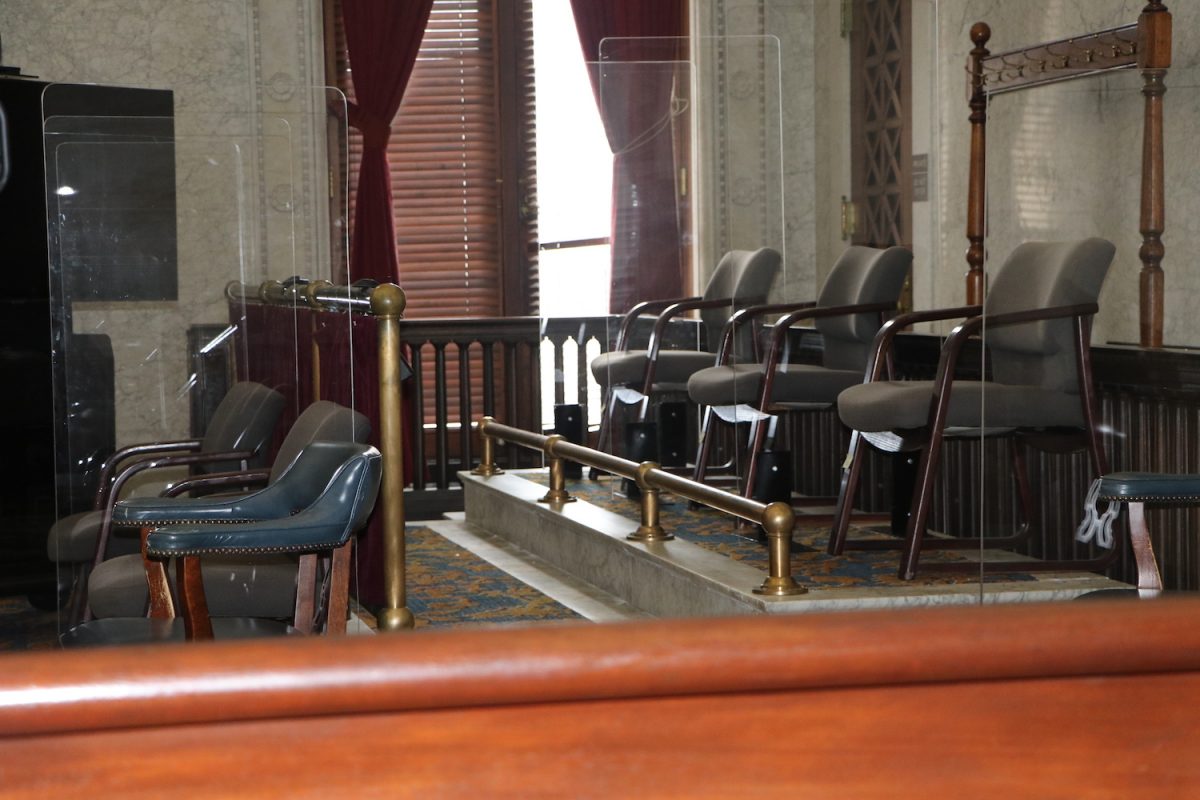
Thank you for reading Baltimore Witness.
Consider making a donation to help us continue our mission.
By
Andrew Michaels
- December 6, 2021
Court
|
Daily Stories
|
Homicides
|
Suspects
|
Victims
|
Keith Smith’s story of two panhandlers who fatally stabbed his wife, Jacquelyn Smith, on a rainy December night in 2018 began to unravel on the second day of his trial when a recorded interview with a Baltimore Police Department homicide detective played before the jury, revealing that the defendant’s daughter’s cell phone placed them in Druid Hill Park for an unaccounted 12 to 16 minutes that evening.
Smith originally told detectives that Jacquelyn was stabbed by panhandlers on the 1000 block of Valley Street during a police interview on Feb. 12, 2019.
On Friday, he said they ended up driving around Druid Hill Park because he got lost traveling from the American Legion to his daughter’s home. This information was not previously mentioned to detectives, some of whom later drove the same route as part of the investigation.
During the trial on Dec. 3, the prosecution played a recorded interview between Smith and the homicide detective. The detective told Smith that “someone” reported that Jacquelyn’s murder didn’t happen on Valley Street but rather Druid Hill Park. He then said Smith’s daughter’s cell phone pinpointed their location to Druid Hill Park.
“I did not murder my wife in Druid Hill Park,” Smith said in the interview.
The detective also discussed possible motives for Jacquelyn’s murder, including Smith possibly having a girlfriend as well as the possibility that an argument broke out between him and Jacquelyn.
“Something happened in that car between you two,” the detective said during the interview.
The detective testified on Friday that he later called the insurance company and told them to hold out payment on Jacquelyn’s life insurance policy because Smith became a suspect. He also noted that two panhandlers, a couple, were interviewed by police because they were known to frequent the Valley Street area. But, it was later revealed that they had an alibi.
During another homicide detective’s testimony, she described Valley Street as typically a “dark and quiet” area and discussed executing a wiretap search warrant that allowed detectives to monitor calls from Smith and his daughter’s phones, six of which pertained to their investigation.
Some of the phone calls played before the jury were between Smith and travel agents in late-February 2019 when he attempted to buy plane tickets to Cuba, Canada, and the Virgin Islands before his unsuccessful attempt to escape to Mexico. During the calls, Smith asked to purchase tickets for flights for the morning of March 1 using his driver’s license because he did not have a passport. He was informed that a passport was needed to fly to the locations.
About two weeks prior to Smith’s calls to travel agents, another call revealed that he was shipping a USPS package to his daughter, which the detective said they believed may have contained contents related to the investigation. A USPS postal inspector also spoke of the package during his testimony, adding that he received a warrant to intercept it.
During the inspection, detectives found a black LG smartphone, a sticky note with a phone number written on it, and an SD memory card.
There was no further discussion on the contents during the second day of trial.
In the first two days of Smith’s trial, the number of alternate jurors dropped from four to one. The trial is expected to continue on Dec. 7, with Baltimore City Circuit Court Judge Jennifer B. Schiffer presiding.
